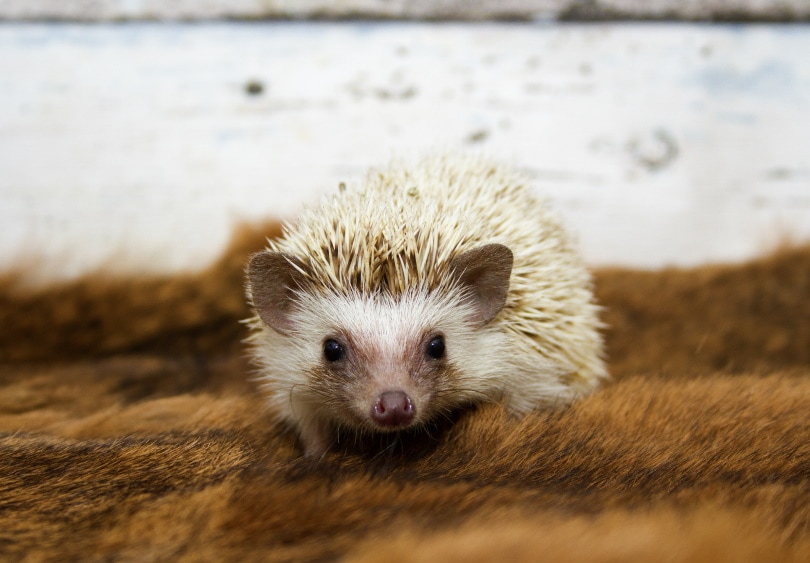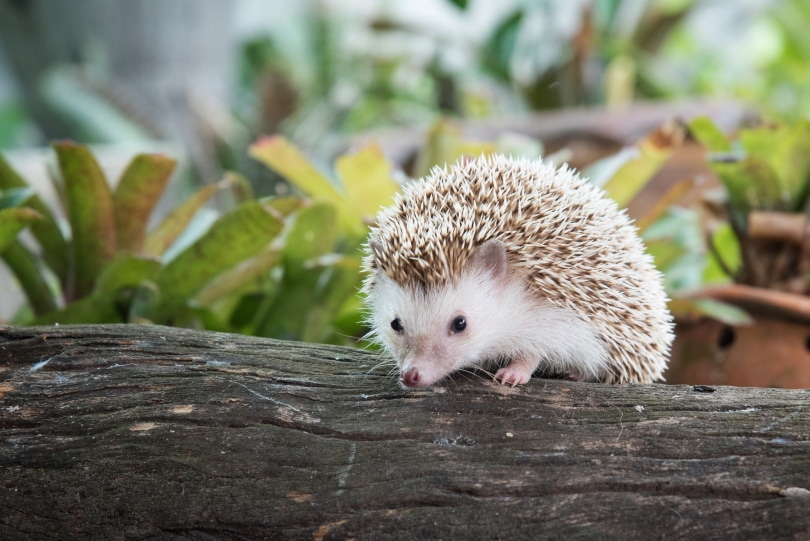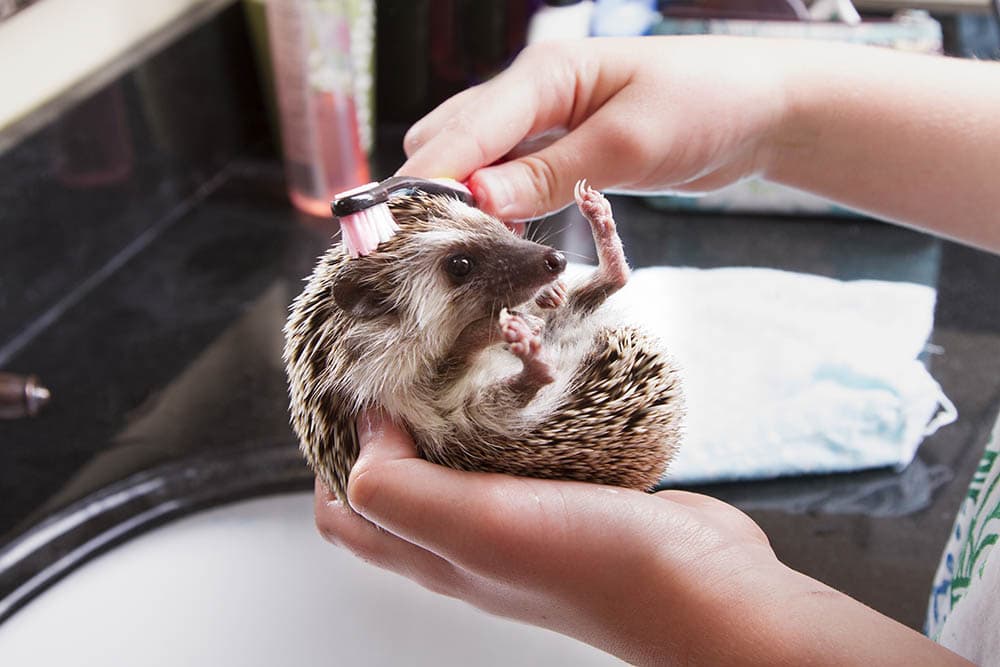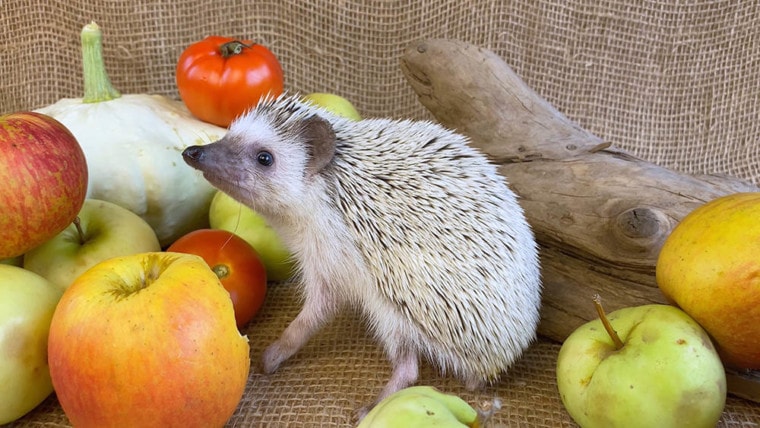
Although hedgehogs should be fed primarily a diet of protein and vegetables, fruits can make wonderful treats that are tasty and healthy. Of course, not all fruits are safe for hedgehogs to consume. It’s important to know which fruits your hedgehog can eat and which they should avoid.
Read below to learn about the best fruits to feed your hedgehog, as well as fruits to avoid.
The 14 Best Fruits to Feed Your Hedgehog
Here is a list of the fruits you can feed your hedgehog:
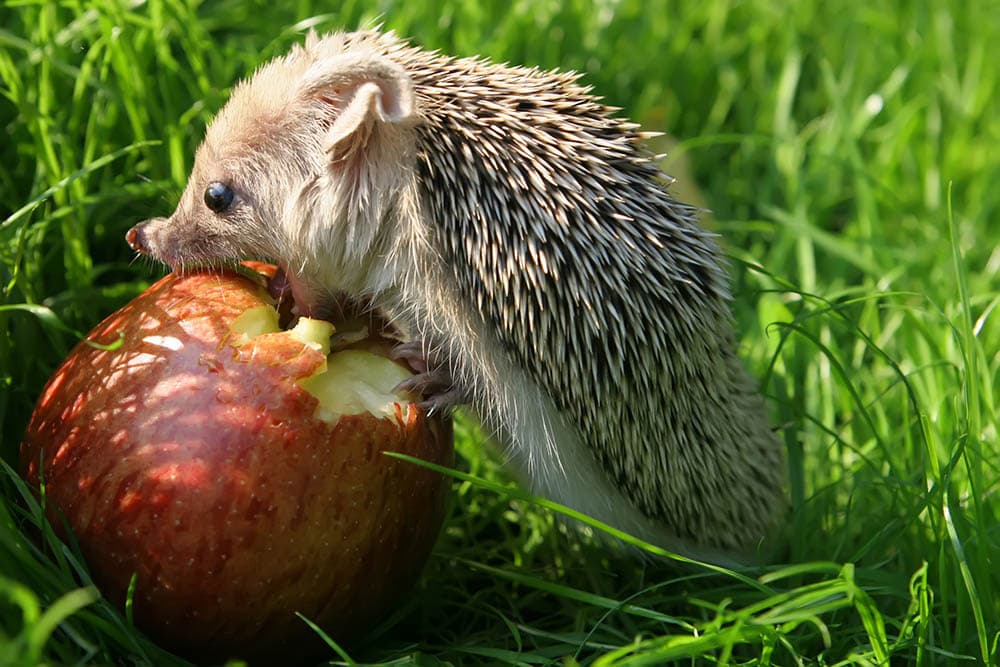
Which Fruits Are Best for Hedgehogs?
Some of the best fruits to feed your hedgehog include apples, pears, bananas, blueberries, strawberries, and watermelon. Although you can feed hedgehogs any of the fruits in the above list, these six fruits are the best options.
No matter which fruit you select for your hedgehog, it’s important that you select an organic variety. Non-organic fruit can be really dangerous to your hedgehog since the fruit was grown with pesticides and other chemicals.
Unfortunately, some of the best fruits for hedgehogs are often grown with a lot of pesticides. For example, apples, cherries, peaches, pears, and strawberries are often grown with pesticides. If you select one of these fruits, ensure that they are organic first. In contrast, cantaloupe, honeydew melon, kiwi, and papaya are often grown with low amounts of pesticides.
Even when selecting low pesticide fruits, it’s still best to shop organic. Fruits that see minimum use of pesticides are sometimes grown with genetically modified seeds. Organic ensures that the food is completely safe for your hedgehog.
Because fruits are so high in sugar and acid, you should not feed your hedgehog fruit frequently. Even if the fruit is approved for hedgehogs, too much fruit can lead to obesity, diabetes, and other issues in your hedgehog. These issues can become more serious if you select fruits that have a lot of pesticides and chemicals in them.
Related Read: How to Take Care of a Hedgehog (Care Sheet & Guide)
Fruits to Avoid Feeding Your Hedgehog
There are certain fruits that you should avoid feeding your hedgehog. The following are fruits that you should not feed to them:
It’s important not to feed your hedgehog any dried fruits. Dried fruits often have way too much sugar with very little nutritional benefits. Do not feed your hedgehog any type of citrus either, including oranges, lemons, and limes. Citrus fruit is way too acidic for the hedgehog’s stomach. The acidity in the pineapple is also responsible for this fruit being banned.
The reason why wild berries are banned is because you never know exactly what kind of a wild berry is safe for hedgehogs to consume. As some wild berries are toxic, simply avoid all wild berries and only feed your hedgehog berries that are bought from the grocery store.
Avocados and grapes should also be avoided. Both fruits are extremely toxic to hedgehogs and can lead to a number of illnesses that can eventually lead to premature death.
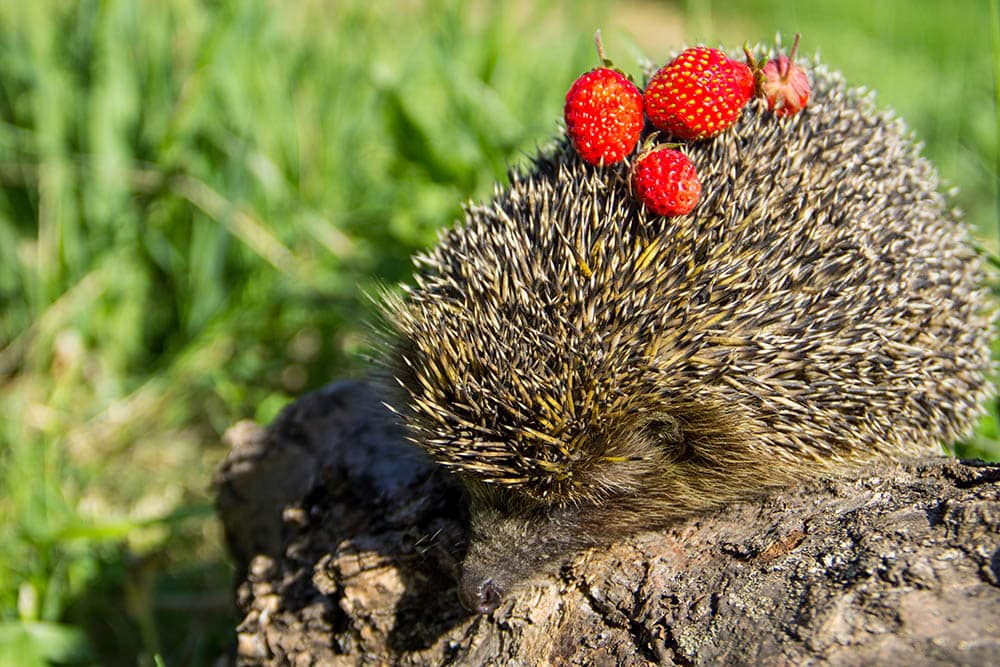
The 4 Tips for Feeding Fruit to Your Hedgehog
When it comes to feeding fruit to your hedgehog, there are some things you need to keep in mind. It’s important to shop organic, feed in moderation, wash the fruit thoroughly before feeding, and cut it up into small pieces. These four steps ensure that you are feeding fruit to your hedgehog in the safest way possible.
1. Shop Organic
As we learned above, it’s crucial to only feed your hedgehog organic fruit. Organic fruit is made with fewer genetically modified ingredients and pesticides. Organic fruit is simply healthier for your hedgehog, giving you less to worry about. Although organic fruit may be more expensive at first, it is well worth the investment.
2. Feed in Moderation
Do not feed fruit to your hedgehog too frequently. Even though fruit comes with a lot of nutritional benefits, they are high in sugar. Too much fruit can lead to extreme weight gain and other illnesses in your hedgehog. Think of fruit as a treat.
3. Wash Thoroughly
Before feeding any fruit to your hedgehog, make sure to wash it thoroughly. Washing the fruit thoroughly ensures that any contaminants are removed from the fruit. Because hedgehogs are so small, even a little bit of contamination can lead to serious issues down the line.
4. Cut Up Into Small Pieces
Fruit can be a serious choking hazard to hedgehogs. Especially fruit with thick skin, such as peaches or plums, can cause hedgehogs to choke. Minimize the risk of choking by cutting up fruit into small pieces. Make sure to remove any skin too.

Conclusion
Even though most fruits are healthy for us, remember that hedgehogs are much smaller than humans. Because of this fact, many of the fruits that you keep at home in your pantry are not suitable for your hedgehog.
Treat your hedgehog to a moderate helping of fruit, such as apples, bananas, berries, melons, and kiwi. These fruits are not the only ones that are acceptable, but they are the best for your hedgehog. Always make sure that the fruit you are feeding to your hedgehog is organic, clean, and has relatively low amounts of sugar and acid.
Next on your reading list:
- Can Hedgehogs Eat Carrots?
- Can Hedgehogs Eat Cat Food? What You Need to Know!
- Can Hedgehogs Eat Chocolate? What You Need to Know!
Featured Image Credit: MarinaTr, Shutterstock


